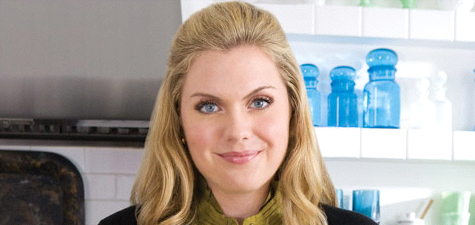Plagiarism is a serious accusation. The New York Post reported last week that Anne Thorton, host of Dessert First, had lost her job. The Food Network declined to renew her show for a third season. The article, however, sites an unnamed source accusing her of plagiarism:
“The network was very concerned because many of her recipes were close — with only a few minor edits — to other chefs’ recipes,” a source close to the production said.
The article goes on to quip: “This puff-pastry princess is a purported plagiarist.” “Unnamed sources” are common in political intrigue reporting about Washington DC or insider trading, but not about food shows. Thorton defends herself to the article:
“As for lemon squares, there’s only so many ways you can make them, so of course there will be similarities. The same thing with baking or frosting — there are only so many ways you can do it,” she said. “It’s chemistry; it’s not just cooking. So there are always going to be things that are the same.” “At Food Network, we go over all our recipes with them,” Thornton said. “They wouldn’t [run] something that wasn’t original.”
But is the Food Network really that concerned with originality or truthfulness?
Don’t forget the case of Robert Irvine padding his resume (See Robert Irvine: The British Affair.) Even if the words on the page are the same, FN is all about watching someone make the recipe, not read it off.
If she isn’t saying or doing exactly the same thing as Martha Stewart or Ina Garten, even if her recipes are very close, isn’t that good enough?
Or is this the result of the fact that The Food Network made a decision to hire hosts instead of professionally trained chefs?

